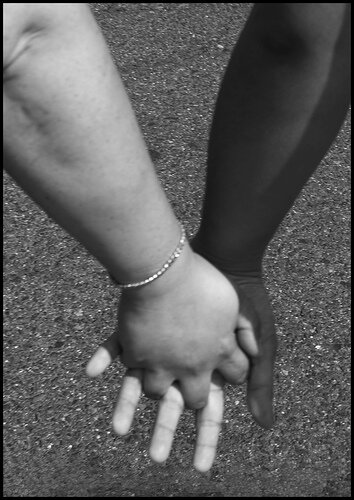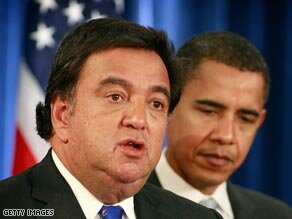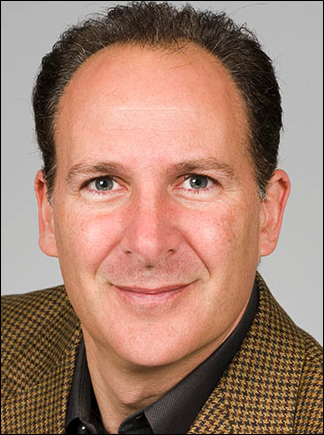
President Obama’s newly appointed attorney general gave a speech that has caused some who advocated or voted for his confirmation, as well as many others, to reconsider the wisdom of giving such a role to Marc Rich’s lawyer.
Eric Holder, without a doubt one of those bright, competent idealogues appointed by the president to bring renewed vigor and (heaven forfend) respectability to the state, used the occasion of a speech dealing with “Black History Month” to browbeat Americans for not trying harder to seek out and socialize with people of racial backgrounds other than their own. Rhetorically, he referred to all races, but in reality he was basically telling white folks to spend a lot more quality time with black folks outside of work.
Now there is nothing wrong with an individual wishing for or vocally urging this. Indeed, it is an inherent right all of us enjoy by virtue of being born human persons, to have the freedom of speech that peaceful persons in all rights possess. But when Mr. Holder says, under the color of his state authority as chief Federal law enforcement officer, that, after we make nice with each other at the office;
“We are then free to retreat to our race protected cocoons where much is comfortable and where progress is not really made. If we allow this attitude to persist in the face of the most significant demographic changes that this nation has ever confronted- and remember, there will be no majority race in America in about fifty years- the coming diversity that could be such a powerful, positive force will, instead, become a reason for stagnation and polarization. We cannot allow this to happen and one way to prevent such an unwelcome outcome is to engage one another more routinely- and to do so now.”
One way to address this perceived problem IS dialogue, Mr. Holder, but if “we” somehow fail “to do so now”, what other “ways” are you contemplating for not allowing a social stratification you personally find distateful to happen - government mandates? Forced integration? Suburban-urban busing? A federal-government mandated mass version of “Wife Swap” or “Trading Spouses“? What leads you believe that your position, however powerful, includes in its job description “national race nanny”? More importantly, why are you instead of going out prosecuting Wall Street’s global Ponzi schemes, are you instead engaging in dry, dare I say colorless imitations of the far more entertaining Al Sharpton and Jessee Jackson?
Lest you believe I am offering all criticism without critique, there IS a way that you can help achieve the goal you seek - that of more off-work-time fraternization between blacks and whites who, by your own admission, seem to abide each other well at work - scrap the entire EEOC sexual-harassment apparatus.
Its sexual harassment codes have a chilling effect on race relations, perhaps what you and your predecessors intended, but this general chill undoubtedly inhibits workers from even considering romantic relationships with people at their workplace.
Because people doing similar jobs tend to earn similar wages (despite the braying testimony of the show-pony of the Ledbetter Equal Pay Act), the workplace used to represent opportunities to meet and develop relationships with people of similar economic backgrounds, as well as a significant source of both economic and social mobility. But EEOC rulings and rules have made many employers paranoid about appearing to condone workplace relationships out of fear of federal reprisal.
This is completely counter-productive. And I say that because I have observed a noticeable increase in natural integration in workplaces I have worked in over the past 20 years, coming about despite government rules and initiatives. And it is coming about due to the realization, understood, yet as-yet-unvoiced by many middle-class white - race is not the most important difference between different people. Class and culture are far more important discriminators among 21st-century middle-class people. Since in America class maps almost perfectly over economic class (strivers of all races have more economically and culturally in common with each other than with kinsmen of different cultural and economic strata), the more important difference or similarity between people of different races is culture.
For this very reason, we are seeing more blacks and other minorities entering the middle-class, and bringing more middle-class blacks and whites into social contact at work as you yourself seem to understand. With accession to the middle class, blacks and whites from poorer social strata find that their economic and cultural circumstances change.This is not a small thing, lack of cultural comonality, familiarity, or cultures that seem alien, hostile, or antithetical are discomfiting and often undo much progress, just as a person who yells a racial epithet in anger can.
There is a certain amount of assimilation of these economically-advancing blacks(and poor whites too) into middle-class cultural norms, just as for years there has been a diffusion of elements of lower-class black American culture (where the differences are most stark, and therefore generative of cultural synthesis) into the culture at large.
This is derided by some vocal persons in some quarters as somehow being unauthentic . But American culture has always and everywhere differed from the old, stale cultures of Europe precisely because of its dynamic, synthetic nature, its ability to take the best, freshest, most dynamic pieces of the cultures of its constituent people and form a stream of new culture, both grounded in and yet wholly different from the earlier culture. To the degree which this synthesis enrichens and strengthens shared cultural norms, even more natural integration will occur. So stop squashing it already!
But to return to your remarks indicating that you don’t see this long-term trend, and that you believe that voluntary social groupings you don’t like equal segregation, this article by Lila Rajiva identifies the biggest obstacle to racial harmony - the state;
“We can call it segregation today, but I wonder what people segregated a century ago would think about that. Students clustered in groups of their own choosing are not terrified men and women fleeing dogs and police batons.
Actually, you don’t need to go back a century. You can find the same thing today in prisons, at non-violent demonstrations, wherever people are rounded up and snatched out of their houses. The victims are black, brown and white. And they’re not where they are because we don’t talk enough about race in this country. They’re there because we don’t talk enough about the state.”
You see, Mr. Holder, when it comes to race, the state has an extremely poor track record. The idea of a state functionary lecturing the entire population on the proper niceties of race relations seems to be to me, a bit, well, Rich.












The Importance Of Failure
Nothing Ventured, Nothing Gained
A friend writes;
It’s sad, but anecdotally it does seem like many people who spend a lot of time and effort trying heroically to be helpful end up with a terminal case of the blues.
I don’t know this person, and thankfully no one I have known well has suffered this malady, but it seems to me like at least some of these very helpful people are in part indulging in self-therapy, running apparently cheerily ahead of the reaper, until something trips them up.
This is by no means always fatal, but the consequences would seem to be serious enough to indulge in a bit of prophylactic melancholy, so that when one of the inevitable slings and arrows of outrageous fortune hits, it isn’t a mortal wound. In some ways, failure can act as a kind of inoculation, the old cliche being ‘what doesn’t kill you makes you stronger’.
Though I can’t recommend ‘vaccinating’ oneself by deliberately bringing misfortune down taking considered risks early in life almost guarantees a few serviceable failures. It isn’t the failures that work the magic, but what coping with failure teaches you. In incremental, but important ways, the skills you learn have survival value.
My own survival lessons include; flunking out of pre-med, losing at love, making a career move and finding myself alone and nearly broke in a strange city, asshole managers, brushes with the law, unbelievable working conditions, a couple of major disasters, marathon commutes, and myriad other indignities great and small, punctuated by bad relationships, boredom, and loneliness.
(Lest you think my life has been nothing but doom and gloom, I have spent less than 0.1% of my life even thinking about my personal failures, including this article. I’m deleriously happy now.)
In fact, the freedom to fail, and the imperative for letting failures occur could not be more timely than in the case of the financial and economic calamity we are facing right now. Failure in the cases at hand needs to happen, it should happen, it is not being permitted to happen, but in the end, after lots of painful, harmful, and completely necessary prolongation by government, I am convinced, it will happen anyway.
Dealing with each of these things taught me things about the corrective value of failure, the importance of family, and the support of good friends. I could easily have avoided failure by avoiding the risks. I could have accepted the failures as some divine judgement on my character, indicating to me that maybe I ought to tightly circumscribe my career and personal ambitions. Instead, I learned, I adapted, I sought out new directions, and I have prospered. Taking those risks has also taken me amazing places, shown me astonishing things, introduced me to incredible people, and enrichened my world beyond description.
And I’m still a realist. The world could go completely egg-shaped for me again one day. But I’ll be ready.